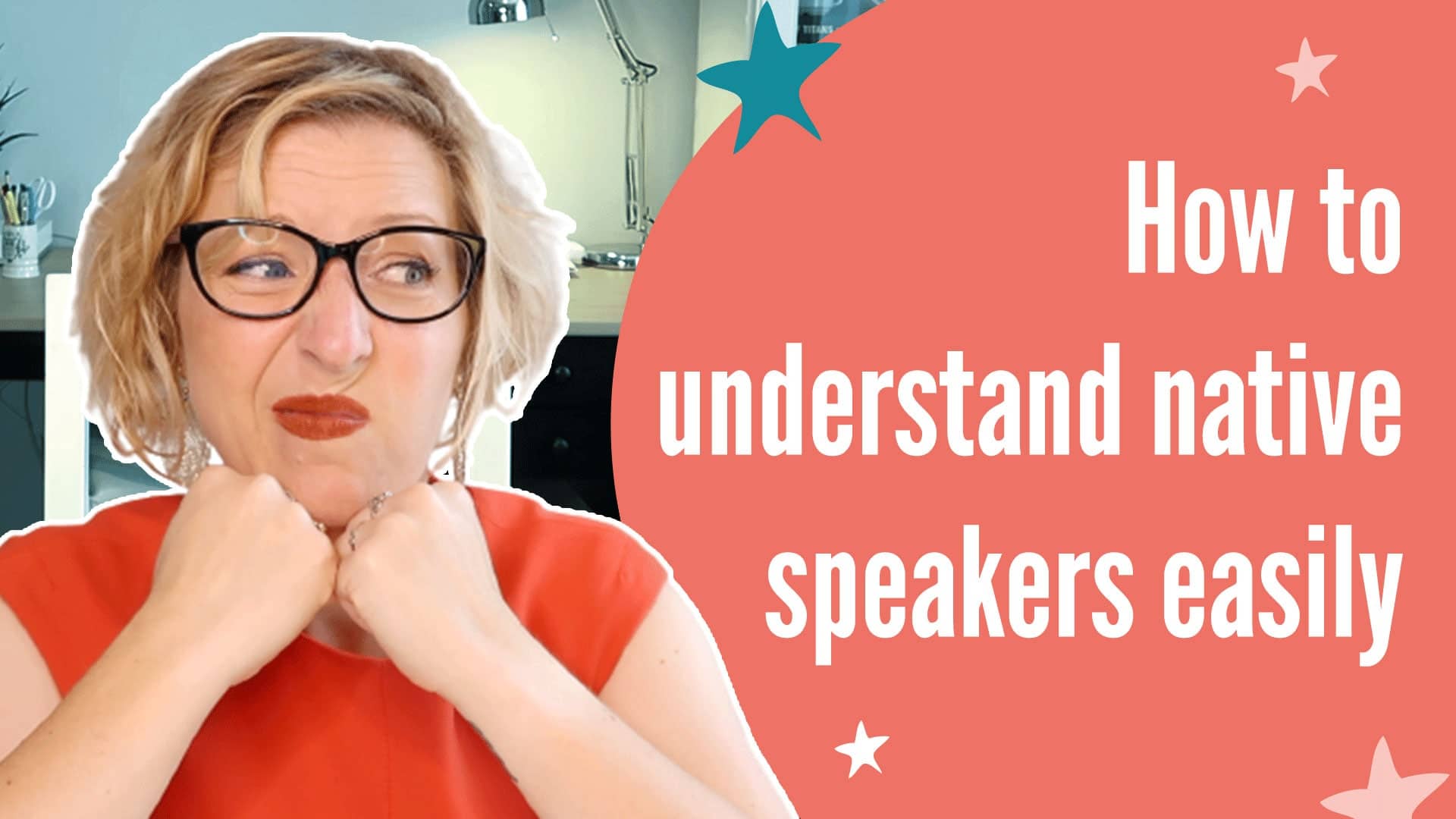
Do you know what I remember from when I first arrived in France?
All those social and professional situations that would normally have been easy for me. Well, at least back home in Mississippi and in English.
But in my new life and new language, suddenly conversations were hard.
Even after years of learning the language in school, I felt like something was missing.
Conversations didn’t flow. I struggled. Or I just didn’t understand.
It is incredible how the confidence you normally have can seem hard to find when you don’t understand native speakers around you. I know all about that.
But I also know that you don’t have to live with that feeling–that you are some less confident version of yourself in English. And there’s nothing I love more than helping people be their true (confident) selves in social situations in English.
It all starts with understanding. In today’s post, I’m going to take you through 3 essential lessons in understanding native speakers so that you can start making progress now.
Yes, these things take time. But start now. Practice a little each day and watch yourself progress. It takes practice and consistent effort. But with the right strategies, you can do it.
And more importantly, you are worth it.
Index:
1. Understanding Native Speakers: 4 things you must know if you want to understand Americans.
2. Understanding Native Speakers: Why certain sounds disappear at the end of words.
3. Understanding Native Speakers: How to understand the Flap T–and why you really need to!
1. Understanding Native Speakers: 4 things you must know if you want to understand Americans.
Do you know that feeling? You see people’s mouths moving, you hear the words coming out–but you wonder if they’re actually speaking English at all. It happened to me all the time in French when I was still learning. But if you’re learning English it’s particularly hard if you don’t know the 4 secrets to understanding native speakers. Once you do, you’ll realize that what seems impossible to understand…is actually words and phrases you recognize and know. What a relief! This is an essential lesson not to miss if you ever struggle to understand native speakers. Check out 4 Keys to Understand Americans Who Talk Fast. There’s a blog post here and a video that’s sure to help you.2. Understanding Native Speakers: Why certain sounds disappear at the end of words.
It’s so frustrating. When you were learning English, you saw the expressions to learn in a manual or on a worksheet–and it all looked reasonable and familiar to you. But…when actual Americans speak, they don’t pronounce all the letters you see. And there’s often no rule to it! I know it’s frustrating–especially if your ears and your brain are looking for those missing sounds. Here’s what I know after years working as a neurolanguage coach–and with students just like you: You can make progress in understanding native speakers–it just takes some work, consistent practice, and especially, the right strategy. Ready to take a small step that will lead to big changes in understanding native speakers? Check out Disappearing Sounds in English: Final Consonants.3. Understanding Native Speakers: How to understand the Flap T–and why you really need to!
Do you know what people say to me all the time? “I can understand everything in your videos. But I can’t understand conversations with native speakers. Especially if they are talking to each other.” Here’s a big reason why English can sound so confusing and mysterious: you see the letter “t” but we rarely pronounce it as you’d expect. But just knowing that only helps so much. You need to practice so that your brain gets used to recognizing words that you already know, but are pronounced in an unexpected way. You’ll find an explanation plus a little practice so you can start learning this essential skill now in my blog post and video: Understand Real American English: the Flap T Sound.Small changes add up to big improvements in your English!
It can feel like understanding native speakers is this huge goal. It can feel like it’s something you want so much, but that you’ll never reach. But I know this: if you start small, stay consistent and focus on the right things, you’ll see the progress you need. Will you be perfect? No. But you don’t have to be perfect to have much better conversations in English, or just to feel like yourself. You don’t have to be perfect for English to open doors for you. So start with these 3 essential lessons today. Practice a few times on your own. Then remember what you learned the next time you watch your favorite series or have a conversation with a native speaker. And when you progress, celebrate. You’re working hard and going in the right direction.If you don’t use it, you lose it. So here’s how you can use what you learned today!
The best way to become more confident using Business English is to practice! Here’s your weekly challenge for this week:- Tell me what YOU find difficult about understanding native speakers.
- Don’t be afraid or embarrassed! We all feel this way sometimes! I certainly felt like it was impossible to understand native speakers when I was learning French. But now, I understand as well as in my native language!





I would understand better if the kids weren’t messing around behind you.Can’t you throw them away?
Nevertheless pretty good lesson.